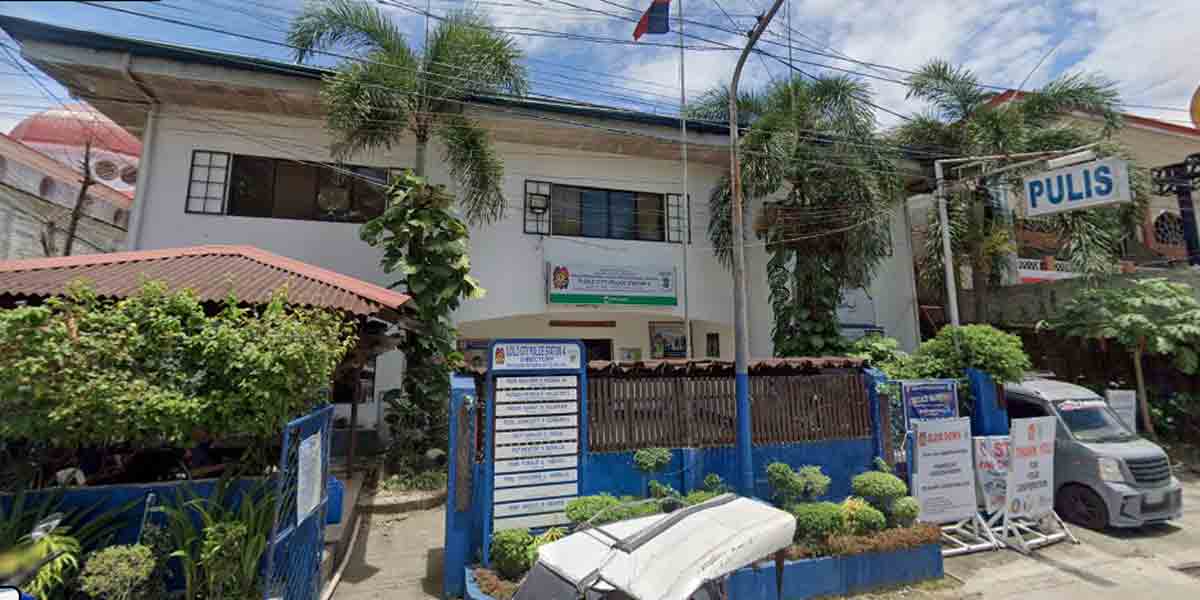By Francis Allan L. Angelo
I was supposed to run this op-ed piece on October 8 as an analysis of what former Iloilo City Mayor Jed Patrick Mabilog was planning to after he files his certificate of candidacy.
But oligarchic and traditional politics virtually dismantled the plans of Mabilog and Rep. Julienne Baronda, forcing them into a shotgun marriage with the Treñases who, until October 7, were grasping for straws in order to stay in power.
In short, this is a description of the roadmap to solving the “Mabilog conundrum.”
Here now is the full op-ed:
Former Iloilo City Mayor Jed Patrick Mabilog stands at the center of a complex legal and political conundrum, one that has kept him disqualified from public office since 2017. His situation is a powerful reminder of how political persecution can intersect with judicial processes in the Philippines, raising serious questions about fairness, the rule of law, and the potential for abuse of power.
This is a major linchpin if he runs for Iloilo City mayor. That is still a big IF.
If he indeed runs for mayor again, his legal team will have to prepare for a pivotal ruling from the Commission on Elections (Comelec)—expected within 25 days after October 8—on whether he can campaign amid his disqualification.
The broader implications of this case must be scrutinized.
Vendetta
Mabilog’s story is inseparable from the administration of former President Rodrigo Duterte. His troubles began when he was repeatedly singled out by President Duterte in the latter’s war on drugs. Without credible evidence, Duterte included Mabilog’s name on a so-called “narco-list,” publicly accusing him of being a drug protector. This move, coupled with direct threats to Mabilog’s life—such as Duterte’s infamous statement, “Magbalik ka dito, patayin talaga kita”—created an environment of fear and intimidation.
These actions, which legal experts from Mabilog’s team have consistently argued, were part of a broader political vendetta. They contend that the accusations were unsubstantiated and intended to ruin Mabilog’s political career. This argument holds water, especially given statements from agencies such as the Philippine Drug Enforcement Agency (PDEA) and the Philippine National Police (PNP), which both confirmed that Mabilog was never part of any validated drug watchlist. Despite this, the smear campaign against him persisted, culminating in his forced exile for the safety of his family.
The Ombudsman angle
In a politically charged climate, Mabilog was also convicted by the Office of the Ombudsman for alleged unexplained wealth, resulting in his perpetual disqualification from public office. However, this ruling occurred amid Duterte’s mounting public pressure on the Ombudsman to take action against Mabilog. Even Duterte himself admitted to influencing these rulings, casting doubt on the fairness of the proceedings.
This episode involving a constitutionally independent body not only violated the principles of due process but also underscored how deeply personal Duterte’s campaign against Mabilog had become. According to Mabilog’s legal team, this undue interference provides a strong basis for arguing that his disqualification was a product of political persecution and that the case should be reconsidered by the courts.
International Recognition
Further validating the persecution claim is the fact that the U.S. government granted Mabilog asylum in 2019. This decision came after a thorough review of his case, with the U.S. concluding that Mabilog had been politically persecuted by the Duterte administration. It is not often that foreign governments intervene in the domestic affairs of another nation, but in Mabilog’s case, the threats to his life and safety were deemed credible enough to warrant international protection.
This international recognition is a crucial element of Mabilog’s legal strategy. His legal team argues that the U.S. asylum decision strengthens the claim that his disqualification was politically motivated and not based on substantive legal grounds. The inclusion of Mabilog in the narco-list without credible evidence, paired with public death threats, were clear signs of a campaign designed to destroy a political adversary.
Legal Remedies
Despite the Ombudsman’s final ruling, Mabilog still has several legal avenues to seek justice. One of the most compelling options is the precedent set by the Galman v. Sandiganbayan case, in which the Supreme Court reopened a final and executory judgment due to a compromised trial. In that case, it was proven that the original proceedings were influenced by political factors, leading the Court to nullify the previous decision.
Mabilog’s legal team has expressed that they may pursue this route, arguing that the Ombudsman’s ruling was similarly tainted by political motives. If they succeed in proving that the proceedings were compromised, there is a strong case for the courts to suspend or nullify the disqualification.
Additionally, the possibility of seeking presidential clemency remains on the table. Under Article VII, Section 19 of the Philippine Constitution, the President has the power to grant clemency or commute penalties in cases where there has been a miscarriage of justice. In Mabilog’s situation, clemency would not only restore his political rights but also serve as an acknowledgment of the political persecution he suffered.
Comelec and the 2025 Elections
As Mabilog’s potential candidacy for mayor comes into question, the Commission on Elections (Comelec) will be tasked with deciding whether he can campaign despite his disqualification. According to the law, Comelec has 25 days after October 8 to make this critical decision.
In making this determination, Comelec must carefully consider the legal, factual, and moral dimensions of Mabilog’s case. Should they allow him to run, it would signal a rejection of politically motivated disqualification and a reaffirmation of the Filipino people’s right to choose their leaders. Comelec must weigh the evidence of Mabilog’s persecution and the flaws in the Ombudsman’s ruling against the broader context of justice and fairness.
Let the people decide
Jed Mabilog’s disqualification was more than just a personal attack as his legal team believes it was an affront to the democratic process and the rule of law. Political persecution, when allowed to fester, erodes public trust in the institutions designed to protect justice. By pursuing legal remedies and challenging the validity of his disqualification, Mabilog is not only fighting for his own political future but also for the integrity of the country’s democratic systems.
If Comelec and the courts recognize the political persecution that Mabilog endured, it would represent a crucial step toward rectifying the wrongs of the Duterte era. The time has come for justice to prevail, and for Mabilog to be given the chance to reclaim his place in public service—if that is the will of the people.
Let the people of Iloilo decide.




















